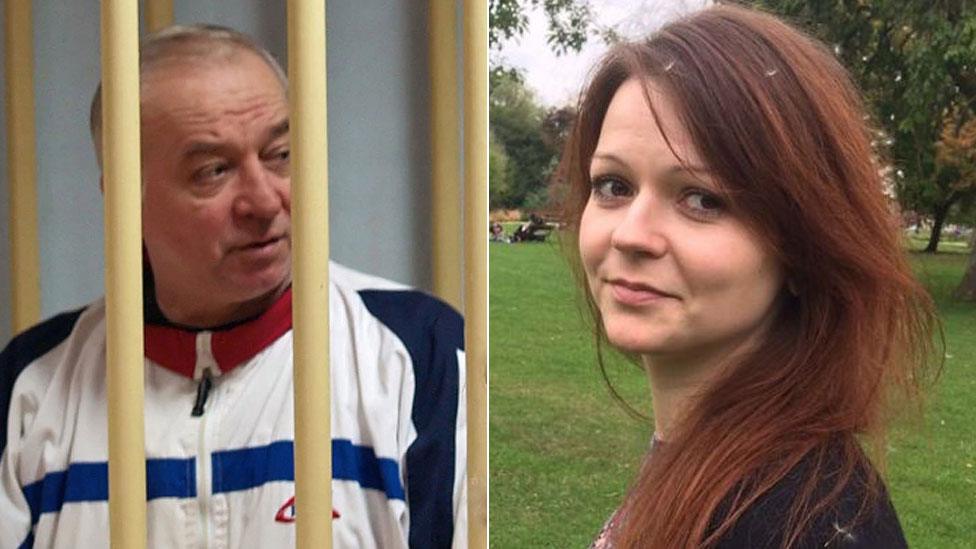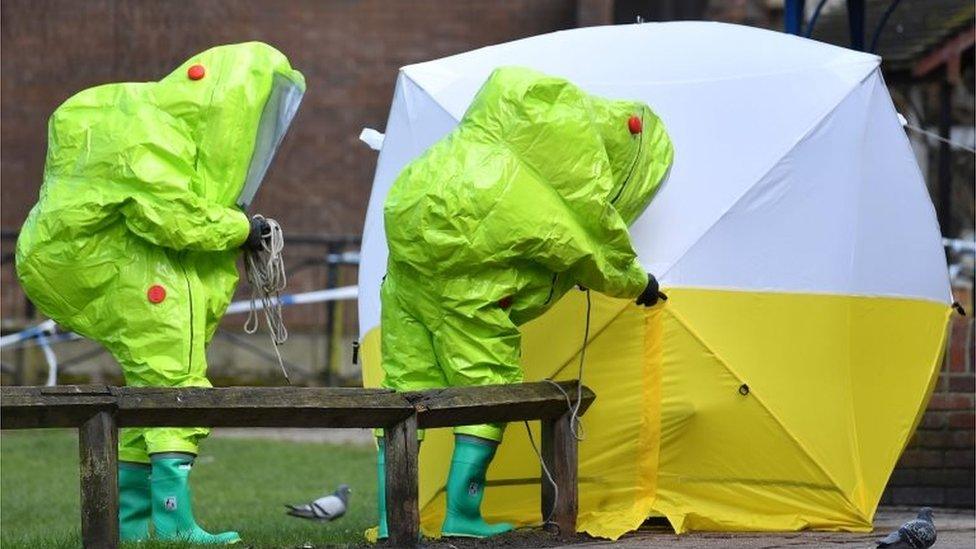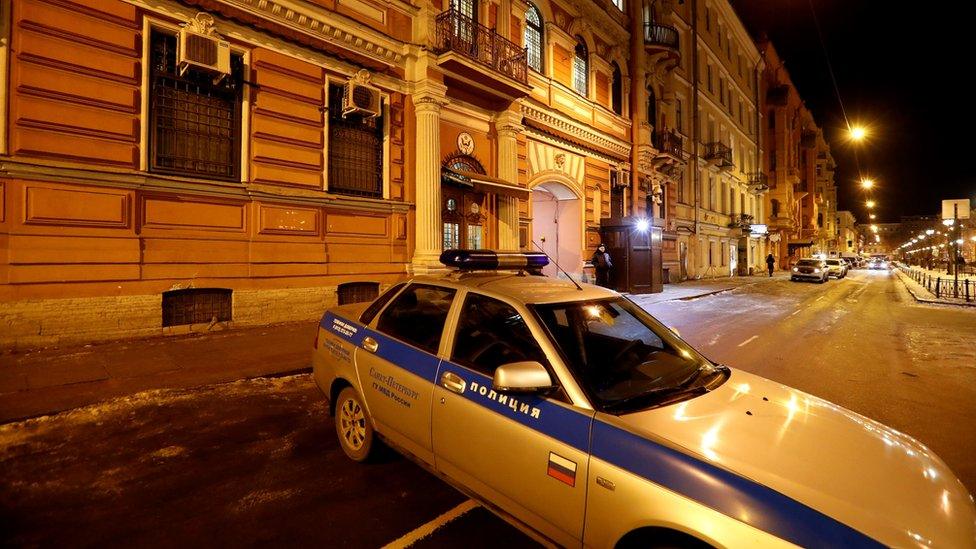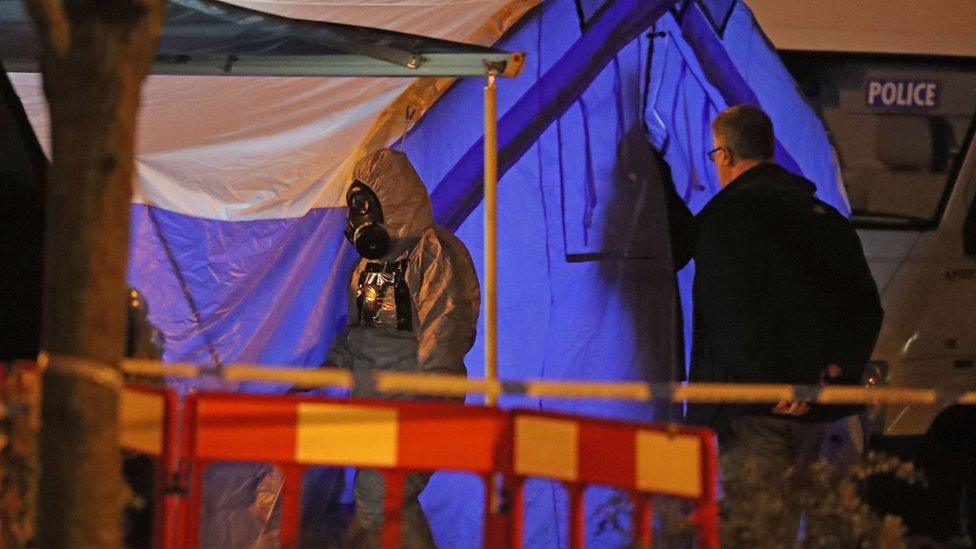Russian spy: UK considers request to visit Yulia Skripal
- Published

Sergei Skripal, 66, and his daughter Yulia, 33, were poisoned by a nerve agent called Novichok
A request by the Russian Embassy to visit Yulia Skripal in hospital is being considered by the UK government.
The UK holds Russia responsible for the poisoning of Ms Skripal and her father, ex-spy Sergei Skripal, by a nerve agent in Salisbury on 4 March.
The Russian Embassy in London says it "insists on the right to see" Ms Skripal, who is a Russian citizen.
The rights and wishes of Ms Skripal will be taken into account, the UK said.
The Foreign Office said it would consider Russia's request in line with its obligations under international and domestic law.
The BBC understands Ms Skripal, 33, is now conscious and talking.
Salisbury District Hospital has said that she was no longer in a critical condition, adding that her father, 66, remained critically ill but stable.
You may also be interested in:
Meanwhile, Russia has announced more measures against UK diplomats, insisting that a total of more than 50 diplomats will have to leave.
Moscow initially expelled 23 British diplomats after 23 Russian diplomats were ordered out by London.
Russia denies any involvement in the nerve agent attack which resulted in the Skripals being exposed to Novichok on March 4.
Twenty-nine countries have expelled 145 Russian officials in solidarity with the UK - and Nato has also ordered 10 Russians out of its mission in Belgium.
On Friday, ambassadors from Albania, Australia, Canada, Croatia, the Czech Republic, Denmark, Estonia, Finland, France, Germany, Ireland, Italy, Latvia, Lithuania, Macedonia, Moldova, the Netherlands, Norway, Poland, Romania, Spain, Sweden and Ukraine were told to send home staff from their missions - corresponding to the same number of Russians their countries had expelled.
And in another development, Russia accused British customs officers of trying to search an Aeroflot airliner arriving from Moscow at London's Heathrow airport without allowing the crew to be present.
The Russian embassy called it "a blatant provocation".
However, security minister Ben Wallace said it was "routine" for Border Force officers "to search aircraft to protect the UK from organised crime and from those who attempt to bring harmful substances like drugs or firearms into the country".
The Russian embassy said it had published a list of 27 questions, external it claimed it had officially asked the British government, which included knowing the exact nature of the Skripals' conditions.
- Published29 March 2018

- Published30 March 2018

- Published8 October 2018
